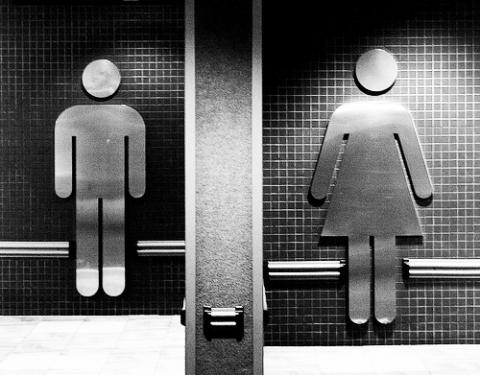Do we want more women in politics?

It's high time we took gender equality seriously. That means removing barriers to women’s participation in politics. By Eoin Ó Broin.
Women make up almost 50% of the population. Yet astonishingly, only 15.1% of TDs in the Dáil are women.
The 2011 general election was one of the most dramatic in recent history, with a record 84 seats changing hands.
Despite this fact the number of women elected only increased marginally on the 2007 general election. In 2007 13.8% of TDs were women.
That’s an increase of 1.3% or 2 extra TDs.
Of course this should come as no surprise. The percentage of women candidates in the 2011 general election was a paltry 15.2%, 2.2% lower than in 2007.
The situation is not much better at local government level. In 2009 the percentage of women councillors was 16%, a fall of 1% on 2004.
Why are women so underrepresented in both local and central government?
Part of the reason is to do with the many barriers that block women’s full participation in political life.
Electoral politics involves long working weeks and very anti-social hours. The anti-family work requirements make it difficult for those with primary caring responsibilities to get involved.
The lack of adequate childcare facilities also acts as a barrier, preventing many who want to play a more active role in politics from doing so.
However the single biggest obstacle to women’s participation in politics is political parties themselves.
We make the rules, within our own parties and at local and central government, that make it difficult for women to fully participate in political life. So it is up to us to remove these barriers.
In a 2002 report entitled Irish Politics - Jobs for the Boys, the National Women’s Council of Ireland identified six areas in which action would be required to increase the percentage of women in politics.
They argued for better access to childcare and more family-friendly policies and work practices. They said that the stereotype of politics as a ‘man’s game’ needed to be challenged.
Importantly they also called on political parties to open up their candidate selection process to more women.
The report’s key recommendation was that, in the absence of proactive action by political parties, Government must introduce legislation linking party political funding from the state to increased representation of women in candidate selection for local and general elections.
This call for legislation was echoed in a 2009 cross party report by the Joint Oireachtas Committee on Justice, Equality, Defence and Women’s Rights. The report said that such legislation would be “introduced on a temporary basis only, and would have an inbuilt ‘sunset clause’ to ensure that when targets are met, the law would lapse.”
Last week the Government announced their intention to bring forward such legislation in the new year, as promised in the Programme for Government.
The logic behind such legislation is simple. Political parties control the selection of candidates for local and general election. The underrepresentation of women politicians is a direct result of the failure of political parties to increase the number of women standing for election.
If political parties are not willing to take the necessary steps to enable women’s equal access to the political process then they can’t expect the same level of financial support from the state.
It is right that the Government sends out a clear message that there is a cost to discrimination.
Some will argue that this is undemocratic; that is imposes pre-determined outcomes on party conventions; that it increases interference by party leaderships in candidate selection; that it undermines freedom of association, and that it disrespects both the electorate and aspiring women candidates.
These arguments have no basis in fact. They are simply justifications for maintaining an unequal and discriminatory status quo.
It is time we took gender equality seriously. That means removing barriers, including barriers imposed by political parties, to women’s participation in politics. Anything short of this is not only bad for politics, but bad for democracy.
Image top: cindiann.
